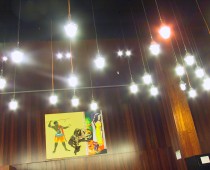The book doesn’t appear to be a simple rehash of the notes from his
Stanford class “Startup”.
1. The challenge of the future
It’s making startups; that’s how we make progress.
2. Party like it’s 1999
The 1999 bubble left everyone believing in lean startup, incremental
progress, don’t paint grand visions. This is wrong.
3. All Happy Companies Are Different
Pick something you can win, and win it. Be different than everyone else.
4. The ideology of competition
Why compete when you can collude? X.com and Paypal merged to create Paypal
the $1bn+ champ. You should too. Find ways to avoid competing.
5. Last mover advantage
If you want to avoid the bruising of competition, then
– have unique tech
– network effects
– scale
– brand power
– start somewhere you can win
– then scale up by adjacencies
– don’t challenge a huge player, sneak around them
6. You are not a lottery ticket
Don’t believe the well-roundedness theory of modern life. Have a point of
view and a plan to capture your vision. Be extremely focused on doing X,
design and plan and execute. Some random philosophical musings in this
chapter about “definite/indefinite” and “optimist/pessimist”.
7. Follow the money
Venture capital works better when you make concentrated bets on a specific
vision of the future; i.e., not spray and pray.
8. Secrets
What do you know that others don’t? Find a secret. That’s where value
begins.
9. Foundations
Rules for founders: early days are super important, can’t fix mistakes,
make sure everyone is very committed.
10. Mechanics of mafia
Culture is about bringing weird people together.
11. If you build it…
Sales is very important you nerds. Not just product.
12. Man and machine
At Paypal they pioneered a “computer helps human” system to fix fraud. That
became Palantir. People overlook this interesting idea. Don’t.
13. Green
A checklist for opportunities
– engineering – can you make it?
– timing – now?
– monopoly? own a small market
– people – have them?
– distribution – how
– durability – can you defend
– secret – have one?
14. Founders paradox
Founders vary in type
15. Stagnation or singularity
What does the future hold? Probably an exponential progress curve.
